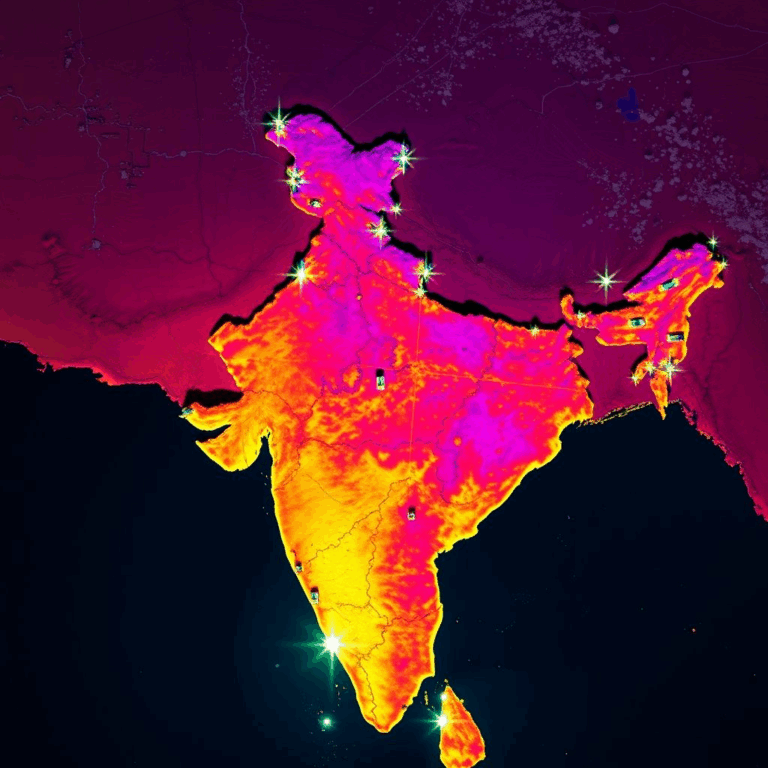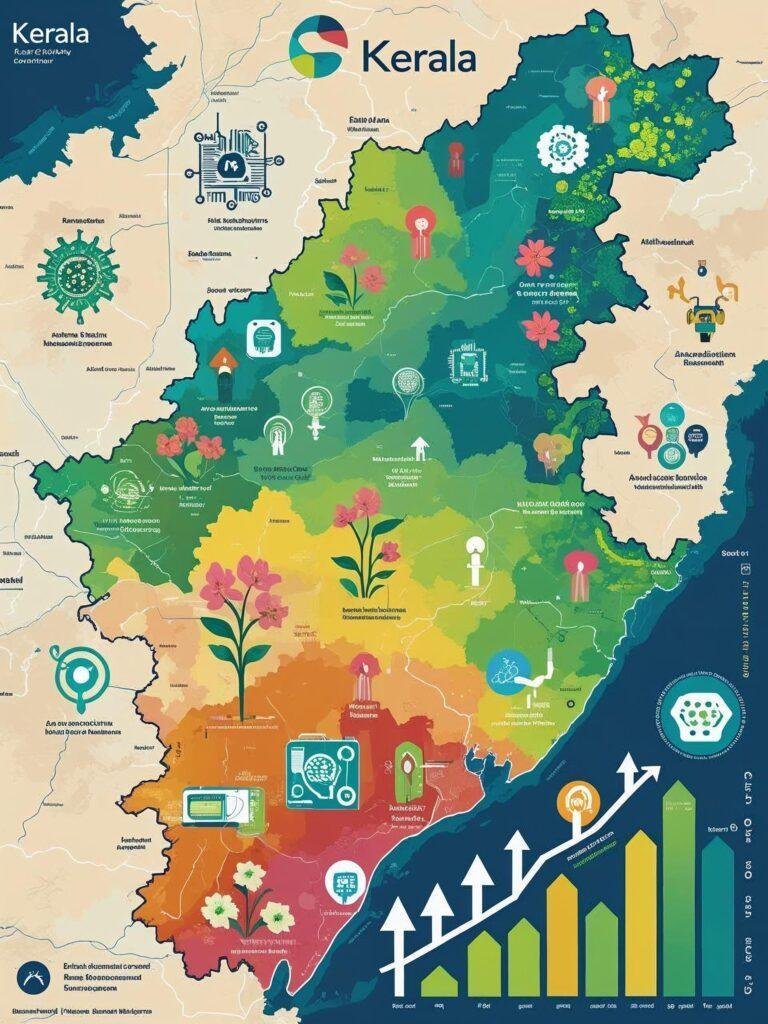Introduction
India’s fast-growing quick commerce startup Zepto has raised $665 million in a record-breaking funding round, officially becoming the country’s first unicorn of 2025. The funding values Zepto at $3.6 billion, tripling its valuation from the previous round.
As the battle in the 10-minute delivery segment intensifies, Zepto is positioning itself as the most capitalized, tech-driven player in India’s hyper-competitive market. The latest fundraise signifies investor confidence in the quick-commerce model, and Zepto’s unique operational strategy could help it dominate one of the fastest-growing segments in Indian retail.
This article delves deep into the who, what, and why of this milestone funding round—and what it means for Zepto and India’s broader startup ecosystem.
Zepto’s Journey: From Teen Founders to Billion-Dollar Giant
Founded in 2021 by Stanford dropout teenagers Aadit Palicha and Kaivalya Vohra, Zepto promised lightning-fast grocery deliveries in just 10 minutes. At a time when pandemic-era behaviors accelerated demand for instant convenience, Zepto leveraged technology and micro-warehousing (dark stores) to achieve logistical efficiency.
Despite initial skepticism about the viability of ultra-fast delivery, Zepto grew at breakneck speed. It expanded to over 10 major Indian cities, optimized dark store density, and implemented its own last-mile delivery network.
The company now processes millions of monthly orders, has over 500 dark stores, and claims positive unit economics in several cities—an extremely rare achievement in Indian e-commerce.
The Funding Round: Investors, Valuation, and Strategic Intent
The $665 million fundraising round saw participation from both existing and new investors, including:
- Glade Brook Capital
- Nexus Venture Partners
- StepStone Group
- Avenir Growth Capital
- Goodwater Capital
- Lightspeed
- Avra Capital
- DST Global
- Prosus Ventures
Notably, this round tripled Zepto’s valuation from $1.4 billion to $3.6 billion, a clear indicator of investor conviction in the startup’s business model, leadership, and execution strategy.
Aadit Palicha, CEO of Zepto, called the round a “launchpad for exponential growth,” noting the company’s intent to double its store count, expand into tier-2 cities, and deepen product categories like fresh fruits, dairy, household essentials, and pet supplies.
What’s Driving Investor Confidence in Zepto?
Several key factors have made Zepto a standout in India’s crowded quick commerce space:
1. Profit-Focused Growth
Unlike competitors burning cash to grab market share, Zepto has emphasized sustainable unit economics. Its dark stores are already profitable in Mumbai and Bengaluru.
2. Superior Logistics Tech
Zepto’s proprietary routing algorithm and warehouse management software reduce wastage, optimize picking time, and ensure rapid order fulfillment.
3. Brand Loyalty and Retention
Zepto’s average customer retention is among the highest in the industry. Users continue to shop weekly, encouraged by hyperlocal offers, zero delivery fees, and a consistent 10-minute delivery promise.
4. Vertical Integration
By owning its dark stores and delivery operations, Zepto controls the entire supply chain, unlike competitors who rely on third-party logistics or rented infrastructure.
5. Young but Proven Founders
Despite being only in their early 20s, founders Aadit and Kaivalya have become industry case studies in product-market fit and scale-oriented execution.
The Competitive Landscape: Blinkit, Swiggy Instamart, BigBasket
Zepto isn’t alone in the race. Its top competitors include:
- Blinkit (acquired by Zomato): Strong delivery network and brand recognition. Currently backed by Zomato’s massive user base.
- Swiggy Instamart: Leveraging Swiggy’s food delivery logistics for cross-leverage in grocery.
- Tata-backed BigBasket: More focused on larger basket sizes and next-day delivery but experimenting with 15–20 minute delivery in select areas.
Despite these strong rivals, Zepto’s speed, tech stack, and profitability path give it a strong moat.
Challenges Ahead: Scaling Without Burning Out
While Zepto’s success is commendable, significant challenges lie ahead:
- Infrastructure Expansion: Doubling dark stores will require massive investment in real estate, supply chain, and training.
- Rural and Tier-2 Penetration: While metro cities are viable, smaller cities require different pricing and product strategies.
- Government Regulations: There’s growing scrutiny on gig worker treatment and dark store zoning. Any regulatory roadblock could disrupt expansion.
- Operational Fatigue: Maintaining delivery speeds, order accuracy, and warehouse efficiency at scale is incredibly demanding.
What Does This Mean for India’s Startup Ecosystem?
Zepto becoming India’s first unicorn of 2025 is symbolic in many ways:
- Revival of Unicorn Activity: After a slowdown in 2023–2024, this signals a comeback of big-ticket funding deals in Indian tech.
- Validation of Q-Commerce: Zepto’s profitability metrics prove that quick commerce can be a viable business, not just a cash-burning trend.
- Investor Appetite Returns: Global VCs, despite tightening belts elsewhere, still see India as a growth frontier.
- Youth Entrepreneurship: Aadit and Kaivalya’s story is inspiring a generation of student entrepreneurs across India.
CEO Statement
In an official blog post, CEO Aadit Palicha stated:
“This capital is not just fuel—it’s validation. We’re building a company that stands the test of time. With this backing, we aim to deepen our presence in every major Indian household.”
User Experience and Product Innovations in Pipeline
With new capital, Zepto aims to:
- Add AI-driven product recommendation features.
- Launch scheduled delivery slots for planned grocery shopping.
- Expand private labels, especially in snacks, bakery, and cleaning supplies.
- Introduce green delivery options using e-bikes in key metro cities.
These moves will deepen customer stickiness and enhance overall shopping satisfaction.
Global Comparisons: Zepto vs Gopuff, Getir, Gorillas
Globally, quick-commerce startups like Gopuff (U.S.), Getir (Turkey), and Gorillas (Germany) have seen mixed success—massive early growth but now facing cash burn issues and layoffs.
Zepto seems to have learned from these examples. By focusing on dense Indian urban centers, vertical integration, and faster breakeven points, it appears better positioned to scale sustainably.
What’s Next for Zepto?
In the next 12 months, Zepto aims to:
- Expand to 100 more cities.
- Reach 1,000 dark stores.
- Launch Zepto Business, a B2B vertical for bulk buyers and restaurants.
- Possibly prep for IPO discussions by 2026.
Given its momentum and backing, an IPO could happen sooner than expected if Zepto maintains growth while controlling costs.







